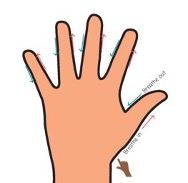Gun Violence: Coping With Stress, Anxiety, and Fear
The repeated instances of gun violence in the U.S., including the most recent killing of 19 children and two teachers in Uvalde, Texas, are devastating for all of us. Worry and fear are natural and understandable emotions at a stressful time like this. Here are a few ways to help all of us keep that stress from overwhelming our lives.
Take breaks from the news.
It’s okay not to be plugged into the news nonstop. “Mental health starts with you. When you take a break from the news, which can be an anxiety trigger, you’re practicing self-care by preventing anxiety,” says Dr. Jo Crasta, Clinical Director and Chief Psychiatrist for VNSNY Behavioral Health. “Remember, prevention is a treatment! In fact, with any illness, including anxiety, preventing that condition is more effective than trying to cure it.”
Breathe.

As simple as it might sound, taking a deep breath can have a calming effect when you’re feeling panicked or overwhelmed. Here’s a five-finger breathing exercise that can bring you back to the moment. Or if you want to take it a step further, try these meditation and mindfulness exercises.
Get moving.

Exercise is a tried-and-true way to reduce the hormones generated by stress and stimulate the production of endorphins, which are chemicals in the body that foster relaxation. It can be as simple as going for a walk, doing spring cleaning, or taking an exercise class. Daily activity can go a long way in reducing stress, and can also make it easier to catch up on sleep at night.
Stay connected with your friends and family.

There’s strength in numbers. Reaching out (and getting together with) friends and loved ones can have a very healing effect on anxiety. That could involve sitting down to write an actual letter to a family member or friend, spending time with neighbors, playing (or creating!) games with family, or even taking the time to write down those generational stories.
Speak to your children.

The news coverage is difficult for adults to watch, but it can be especially worrying and confusing for children –particularly around bedtime. Here are some helpful pointers for talking to children about the heavy news head-on.
Practice self-care.

When you’re worried about people who have been impacted by horrendous events, it’s easy (and wrong) to dismiss your own concerns and state of mind. Make sure to prioritize sleep. Eat regular and healthy meals. Avoid “catastrophizing” — focusing on the “what ifs.” And if you’re feeling overwhelmed, don’t hesitate to reach out for professional help. “The work that we do at VNS Health, providing services to the neediest among us, exposes us to direct and indirect trauma,” notes Dr. Caroline Williams, Chief Psychiatrist with VNS Health’s Behavioral Health’s Assertive Community Treatment program. In addition to caring for ourselves through rest, nutrition, warmth, laughter and exercise, adds Dr. Williams, “we often need individual support in order to maintain emotional and physical well-being. Don’t hesitate to request supervision, or make use of the Employee Assistance Program or other mental health providers to obtain this support.” (For more information on the Employee Assistance Program, click here. For the HHA employee assistance program, click here.)
Take action.
Feeling powerless to change anything can make a tragedy harder to bear. If you’re looking for a way take action, you might consider supporting the following organizations, which are working to prevent gun violence going forward.
Everytown for Gun Safety is a coalition of gun safety organizations that lobbies for gun control legislation on state and federal levels and also provides support services to survivors of gun violence.
Moms Demand Action is a grassroots movement of Americans fighting for public safety measures that can protect people from gun violence. The group works to pass stronger gun laws and close loopholes that jeopardize the safety of families. It also works with communities and business leaders to encourage a culture of responsible gun ownership.
Giffords, an organization started by former Congresswoman Gabby Giffords and her husband, Senator Mark Kelly, works to reduce gun violence by pushing for expanded background checks, federal funding for research on the cause and impact of gun violence, and stronger gun trafficking laws.
The Brady campaign against gun violence, named after President Reagan’s press secretary who was injured during the assassination attempt against the president, fights gun violence by seek to change laws, change the gun industry, and change culture.